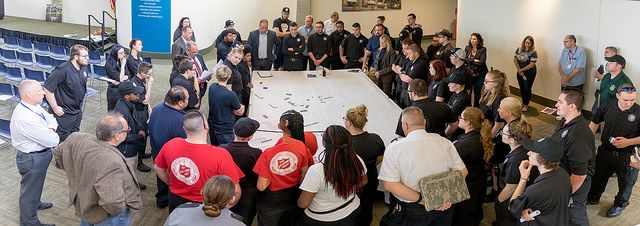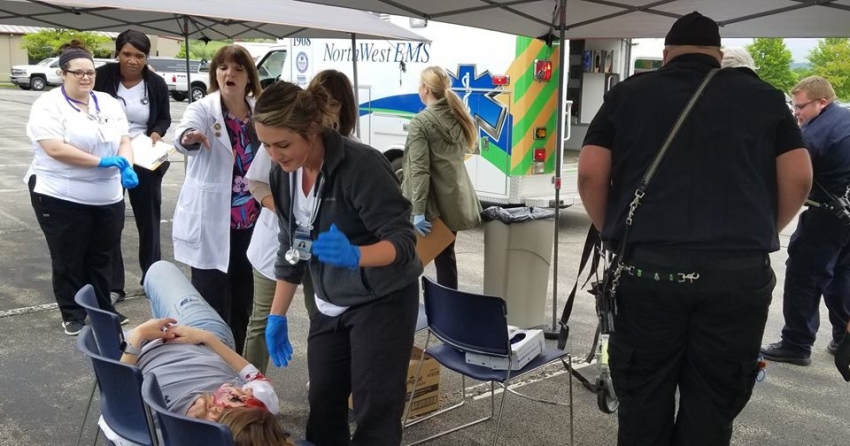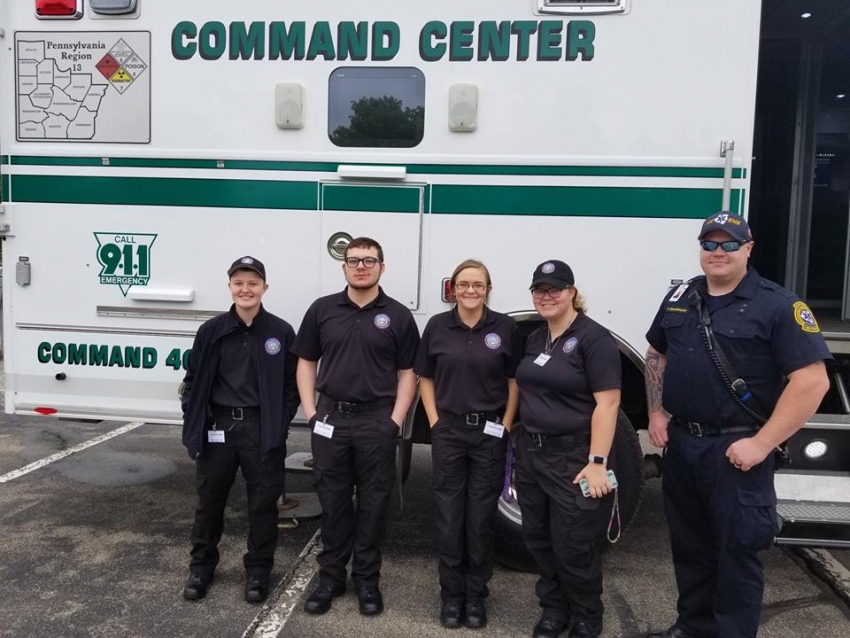Students step into real-world critical training
On May 23, 2018, our Nursing, Criminal Justice, and Multimedia students participated in a live, role-playing event where they put their education and knowledge to the test in a critical, emergency situation. This completely planned event reinforced the knowledge obtained in the classroom and created a more realistic learning environment for the students.
A week before the event took place, our students participated in a tabletop exercise that allowed them to identify the best practices and actions that need to be taken in the event of a critical emergency. Through this exercise, the students improved their understanding of the response concept, identified opportunities or problems, and demonstrated the ability to apply knowledge gained in the classroom in a real life emergency.

On the day of the event, a complete scenario was mapped out for the students that included the details of what happened to cause the emergency and the results of those events. In this case, an argument on a basketball court turned into a crime scene with 12 total victims; 8 injured and 4 dead.
The sights, sounds, and smells were recreated to mimic that of a real crime scene, and each student had a vital role to play in the scenario. Nursing students worked to save the lives of those injured, Criminal Justice students secured and investigated the crime scene to get to the bottom of the incident, and Multimedia students acted as the press to report on the news story.

Not only were faculty, staff and students involved, but local authorities were present to participate and mentor the students as they dealt with this emergency situation – including North Fayette Police Department, Oakdale Police Department, Pennsylvania State Police, North Fayette Fire Department, North West EMS, Allegheny County 911, Allegheny County Medical Examiner, Salvation Army, and the Allegheny County Sheriff.
Students interacted with local authorities, learned from the authorities’ real life experiences in the field, and even brought their own knowledge to the table from what they’ve learned in the classroom. While being mentored throughout the exercise, students had the opportunity to network and create contacts which can be a resource for them for internships and when looking for employment after they graduate.

Shannon Wintruba, a PTC faculty member for the School of Criminal Justice, commented, “It is all about the students. Taking what they learn in the classrooms into realistic, practical situations.” The hands-on knowledge our students gain and the mentorship they receive from this critical incident drill is invaluable and remains with them when they graduate and begin working in their field.